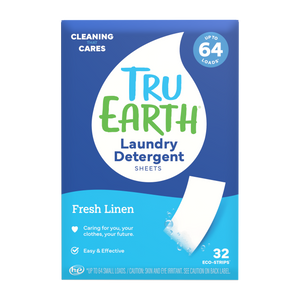When it comes to cleaning products, you may have come across the term "phosphates." Phosphates are chemical compounds commonly found in various cleaning formulations, including detergents, soaps, and household cleaners.
In this article, we will educate you on what phosphates are, their role in cleaning products, and the impact they can have on the environment. Understanding phosphates will help you make informed choices when selecting cleaning products that are not only effective but also environmentally friendly.

The Basics of Phosphates
Phosphates are chemical compounds containing phosphorus, a naturally occurring element. They are commonly used in cleaning products due to their ability to break down grease, grime, and mineral deposits.
The most common form of phosphate used in cleaning is known as sodium tripolyphosphate (STPP). Phosphates act as water softeners and emulsifiers, allowing the cleaning agents to work more efficiently and enhance the overall cleaning performance of the product.
The Role of Phosphates in Cleaning Products
Phosphates play a vital role in cleaning products by improving their ability to remove stains, dirt, and other contaminants. They help to break down and suspend particles in water, preventing them from redepositing on surfaces.
Additionally, phosphates enhance the foaming and sudsing properties of cleaning products, creating a perception of greater cleaning power. Their water-softening properties also make them effective in areas with hard water, where the presence of minerals can interfere with cleaning effectiveness.
The Dangers of Phosphates in Cleaning Products
Using phosphates in cleaning products poses several risks and dangers to the environment and human health. One of the primary concerns is their contribution to water pollution. When phosphates are washed down drains and make their way into water systems, they can lead to eutrophication, a process in which excessive nutrients cause rapid growth of algae and aquatic plants.
This overgrowth disrupts the balance of ecosystems, depletes oxygen levels in the water, and harms aquatic life. Furthermore, phosphates can have detrimental effects on human health. When phosphates come into contact with the skin or are inhaled as aerosols, they can cause irritation and allergic reactions.
Prolonged exposure to phosphates has been linked to skin disorders, respiratory issues, and eye irritation. In addition, phosphates can also pose a risk if ingested. High levels of phosphate consumption have been associated with adverse health effects, including kidney damage and cardiovascular problems.
Moreover, the use of phosphates in cleaning products contributes to environmental issues beyond water pollution. The production and disposal of phosphate-based cleaners can release harmful chemicals and greenhouse gasses, contributing to air and soil pollution. These pollutants can impact ecosystems, wildlife, and human health.
Recognizing the dangers associated with phosphates, many countries and regions have implemented regulations to limit or ban their use in cleaning products. Alternatives to phosphate-based cleaners have emerged, offering effective and safer options for cleaning. By choosing phosphate-free cleaning products, consumers can reduce their environmental footprint and minimize their exposure to phosphate risks.
It is important for consumers to be aware of the potential dangers of phosphates in cleaning products and make informed choices when selecting cleaning products for their homes. By opting for phosphate-free alternatives, individuals can contribute to a cleaner and healthier environment while safeguarding their own well-being and the well-being of future generations.
Environmental Impact of Phosphates
The use of phosphates in cleaning products has raised significant environmental concerns due to their impact on water systems. When phosphates are washed down drains and make their way into rivers, lakes, and oceans, they can contribute to water pollution and disrupt delicate ecosystems.
Phosphates act as nutrients, fueling the growth of algae and aquatic plants. While some algae growth is natural, excessive amounts of nutrients from phosphates can lead to an overgrowth of algae and plants in bodies of water, a phenomenon known as eutrophication. This overgrowth blocks sunlight from reaching other aquatic plants and depletes oxygen levels in the water as the algae decompose.
As a result, fish and other marine organisms struggle to survive, leading to ecological imbalances and potential harm to the overall aquatic ecosystem.
The excessive growth of algae can create harmful algal blooms, which release toxins that are harmful to both aquatic life and human health. Therefore, reducing the use of phosphates in cleaning products is crucial for preserving the health and balance of our waterways and protecting the diverse ecosystems that depend on them.
Phosphate-Free Alternatives
Many cleaning product manufacturers have started producing phosphate-free alternatives in response to growing environmental concerns. These products are formulated with alternative ingredients that deliver effective cleaning power without the negative environmental consequences associated with phosphates.
Look for cleaning products labeled as "phosphate-free" or "eco-friendly" to ensure you are making a more sustainable choice. These products often utilize plant-based or biodegradable ingredients that are safer for the environment.
Choosing Environmentally Friendly Cleaning Products
When selecting cleaning products, it's important to consider their environmental impact beyond just the presence or absence of phosphates. Look for products that are certified as environmentally friendly, such as those with recognized eco-labels like Tru Earth or Green Seal.
These certifications indicate that the product has undergone rigorous testing to meet specific environmental standards. Opt for products with biodegradable formulations and minimal packaging waste to minimize your ecological footprint.

Unraveling the Mystery of Phosphates in Cleaning Products
Phosphates are chemical compounds commonly found in cleaning products that play a crucial role in enhancing cleaning performance. However, their environmental impact, particularly in water systems, has raised concerns. By opting for phosphate-free and environmentally friendly cleaning products, you can ensure effective cleaning while minimizing harm to the environment.
Making informed choices, responsibly using products, and following proper disposal practices are essential to promoting a cleaner and more sustainable future. Remember, small changes in the products we choose can collectively significantly impact the environment.


